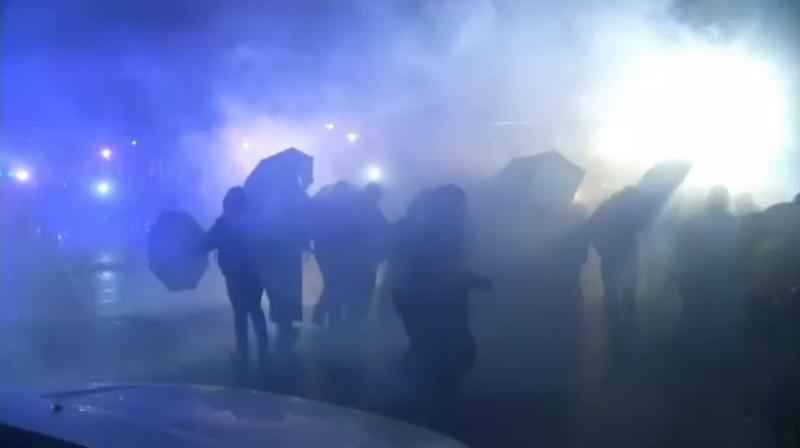Brooklyn Center residents beleaguered by unrest but support social justice movement
[anvplayer video=”5021792″ station=”998122″]
Protesters clashed overnight with law enforcement outside the Brooklyn Center Police Department for a third night in a row. The unrest followed what started as a peaceful protest then a march to the FBI headquarters.
Tear gas, rubber bullets and flash-bang grenades poured into the streets of Brooklyn Center. Neighbors in the area say they’re experiencing something they’ve never seen before.
Tear gas seeped into the apartment of Angel Martin, who lives right across the street from the Brooklyn Center Police Department.
“It’s like kind of stressful for us because we still have to live here,” Martin said. “They don’t understand ’cause we got to live over here, and here it is every night. Getting no sleep.”
She says she supports the social movement for justice. She just wishes it didn’t come with such a disturbance.

[KSTP]
Meanwhile, a couple of blocks away, Kavess’e Anthony Wicker has also been listening to the noise.
“I’m torn. Our community is facing destruction. But then also I have an understanding of why this is happening,” Wicker said.
Wicker says he understands the need for police reform. He said he reached out to city leaders about his concerns three weeks ago.
“I had a Zoom meeting with the chief, Council Member (Marquita) Butler and the city manager at the time,” Wicker said. “Explaining that the way the police are responding to situations become volatile.”
His father, John Solomon, is also concerned about incidents around the state, including George Floyd’s death.
“I could have been accused of passing a $20 bill, whatever it may have been mistaken. It’s the response that’s been the problem,” Solomon said.
So while the noise is trouble, Solomon also has some sympathy with the movement.
“I think all the residents understand, they just don’t understand the looting and the tear up of the community,” Solomon said.
He hopes change comes soon, so images like this will be gone from the neighborhood they cherish.
“That kind of gives you a little insight into how deeper the problems have been. And that there is a real need to move forward here,” said Solomon.